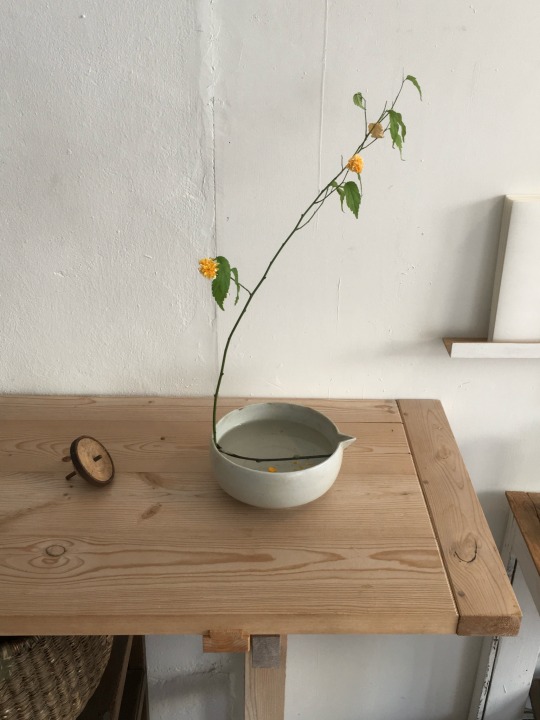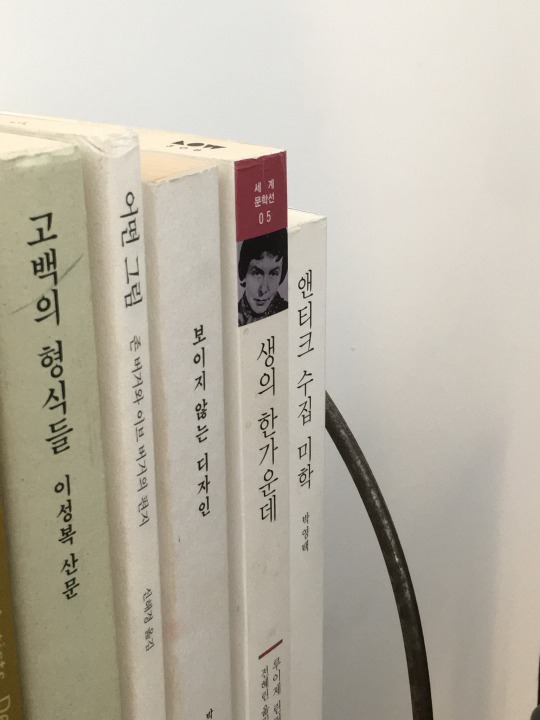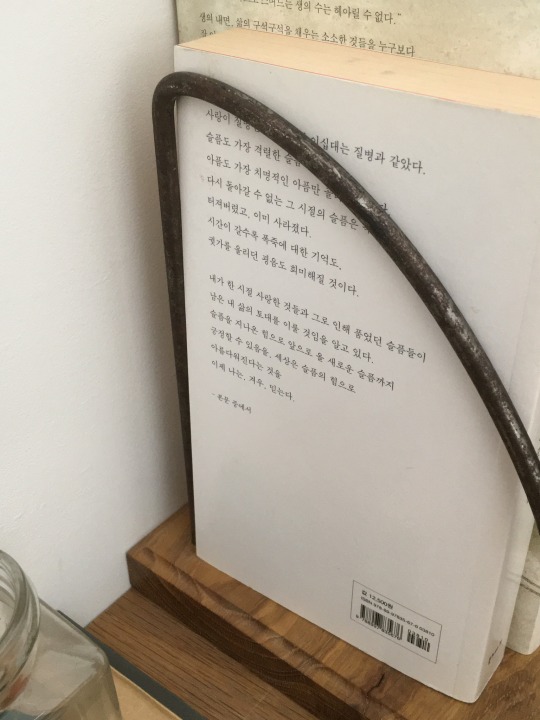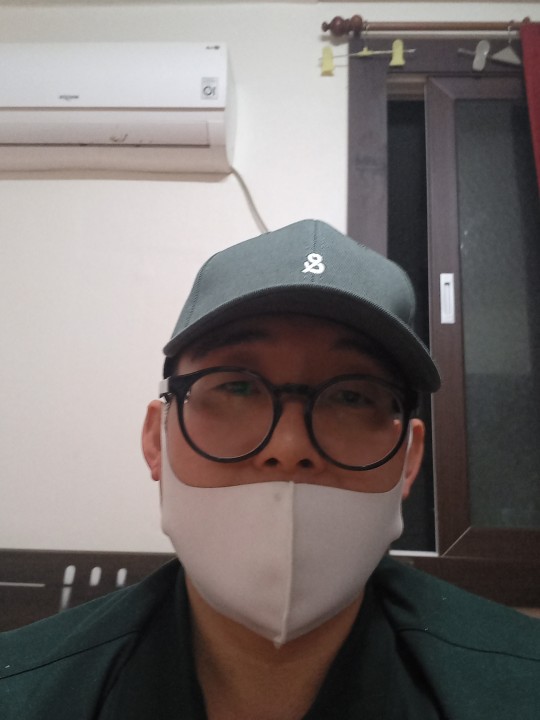#이나
Text

Easiest Korean Particles
N처럼, N같이
N마다
N쯤
N이나
N처럼, N같이 = Like [Noun]
Usage: Kind of like a “simile” in English and it corresponds to “like” or “as”. When you want to express that an action appears the same or similar to the noun you attach 처럼 or 같이 to.
Note: 처럼/같이 are often used metaphorically to compare characteristics by comparing them to other things.
Examples:
그 남자는 말처럼 빨리 달려요. He runs as fast as a horse.
지민 씨는 천사같이 노래해요. Jimin sings like an angel
그녀의 머리는 아이돌처럼 예뻐 보여요.
Her hair looks as pretty as an idol.
N마다 = Every [Noun]
Usage: This is attached to nouns that express a time - time nouns. To indicate the repetition of the same/similar situation or behavior over a set period of time. It can be translated as “every”, “each”, “once every“. It’s added directly next to the time noun being described.
Examples:
주말마다 여행을 가요. I go on a trip every weekend.
금요일마다 친구를 만나고 외식을 해요. Every Friday I meet my friends and (we) go out to eat.
우리 집에는 방마다 티비가 있어요. There’s a tv in every room in (our)my house.
Note: It can also be added to non time nouns - regular nouns.
Ex: 학생마다 달라요. Each student is different.
No need to add it to words that have 매 in them as it indicates “every ___”
매일 (everyday) → 매일마다 (X)
날 (day) → 날마다 (everyday)
N쯤 = About [Noun]
Usage: It’s added to nouns that represent numbers, times, and quantities. It indicates an approximation - “about” or “around”.
Examples:
넌 열다섯 살 쯤 되어 보여요. You look about 15 years old.
한시쯤 어때요? 수업이 열두시 오십분에 끝나요.
How’s around 1 o’clock? My class ends at 12:50.
우리는 일년쯤에 중국에서 중국어를 공부할 거예요. We will study Chinese In China for around a year.
Extra Notes:
When referring to approximate prices, ‘Noun쯤 하다’ is used more often than just ‘Noun쯤이다’.
Example:
사과는 세개에 이천원쯤 해요.
Apples cost about 2000 won for 3.
N이나 = Noun Or Noun
Usage: This actually has 3 usages, but we will focus on the main one which means “or”. It can only be attached to nouns. One of the two or more listed nouns will be chosen. (거나 means the exact same, but is attached to verbs instead)
Form:
Consonant - 이나
Vowel - 나
Examples:
목이 말라요. 물이나 차를 마시고 싶어요. I’m thirsty. I want to drink water or tea.
구두나 가방을 살 거예요. I’ll buy some shoes or a bag.
토요일에나 일요일에 운동해요. I exercise on Saturday or Sunday. (You can attach 나 to 에 or leave 에 out and just use 이나)
PRACTICE SECTION:
Something to keep in mind is that when you are using these particles you do not need to also attach the subject or object particles to them!
TRANSLATE EACH
1.) We go to Itaewon every Saturday night.
2.) I went to the hospital around 10:30 am.
3.) We talked for about 4 hours.
4.) My sister can dance like Jhope.
5.) Every 2 hours I drink water or tea.
#korean particles#practice korean particles#beginner korean grammar#korean grammar#이나#나#쯤#쯤하다#마다#처럼#처럼 lesson
103 notes
·
View notes
Photo

大雨の翌日の暑さ‼️ 熱中症気味でガーデニング。 暑い🥵 #やまゆり #山百合 #花#ガーデン#ガーデニング#夏#空#庭#이나 하옇든 흔들려 #산나리#꽃#가든#원예#여름#하늘#정원 #flowers #gardening#summer#sky#garden#lily https://www.instagram.com/p/CgJxjirriQA/?igshid=NGJjMDIxMWI=
6 notes
·
View notes
Text
N1{*v}나 N2 • N1{*c}이나 N2
[...·na ...] • [...·i·na ...]
N1 or N2
If N1 ends with a vowel ➡ 나 ending
Else ➡ 이나 ending
#나#이나#grammar: adverbs#grammar: conjunctions#grammar: particles#grammar: linking words#grammar: all#or#na#ina
0 notes
Text
성향에 대한 갈증이 심하다고 #일플 이나 #만남 을 즉흥적으로 하기 보단.. 사전 교감이나 대화가 더 중요하다.
떄론 대화만으로도..누군가에게 아무에게도 말하지 못했던 성향을 털어놓는것만으로도 더 성숙해지니까... 물론 서로 진솔해야겠지만.
#섹트 #트친소 #에세머_트친소 #에세머트친소
성향에 대한 갈증이 심하다고 #일플 이나 #만남 을 즉흥적으로 하기 보단.. 사전 교감이나 대화가 더 중요하다.
떄론 대화만으로도..누군가에게 아무에게도 말하지 못했던 성향을 털어놓는것만으로도 더 성숙해지니까... 물론 서로 진솔해야겠지만.
#섹트 #트친소 #에세머_트친소 #에세머트친소
#성향에 대한 갈증이 심하다고#일플 이나#만남 을 즉흥적으로 하기 보단.. 사전 교감이나 대화가 더 중요하다.#떄론 대화만으로도..누군가에게 아무에게도 말하지 못했던 성향을 털어놓는것만으로도 더 성숙해지니까... 물론 서로 진솔해야겠지만.#섹트#트친소#에세머_트친소#에세머트친소#멜돔#팸섭#본디지#성감대#조교#시오후키#마스터#올컨#스팽#갱뱅
3 notes
·
View notes
Video
youtube
[고린도전서 3장 6. 에서 8절 말씀 아멘] #서집사 @deacon @서집사 #deacon #소상공인마켓 #비데 #비데구입 #비...
#youtube#고린도전서 3장 6. 나는 심었고 아볼로는 물을 주었으되 오직 하나님께서 자라나게 하셨나니 7. 그런즉 심는 이나 물 주는 이는 아무 것도 아니로되 오직 자라게 하시는 이는 하나님뿐이니
0 notes
Text
오늘은 콩나물 비빔밥 ..
여기엔 날달걀 하나 까서 넣고 마구마구 비벼주면 땡 이쥬 ..
이거 말고도 건추밥 ( 시래기밥 ) 이나 고구마밥 감자밥도 좋은디 말이쥬. ㅎㅎㅎ
건추밥은 말린 시래기의 향이 더해져서 보약을 먹는 느낌이 들죠 ㅎㅎㅎ
가을엔 역시 우리 느낌이 충만한 음식으로 ㅎㅎㅎ
#광명전통시장 #광명시장 #전통시장 #추천맛집 #광명왕족발 #광명할머니왕족발 은 #광명소셜상점 #미리내가게 #광명8경 #광명동굴 #광명시 #LocalGuides 와 함께 합니다

22 notes
·
View notes
Text
Especial KRP — Nomes femininos coreanos
Eu gosto muito de anotar alguns nomes meio diferentões para usar em krp, então resolvi compartilhar com vocês alguns nomes femininos que não vejo tanto em krp. Com possíveis variáveis na romanização e forma abrasileirada de leitura.

Ahin, Aheen, Ain, Aeen (아인 - Aín)
Ahyeon, Ahyoon, Ahyun (아현 - Arrión)
Ahyeon, Ahyun, Ayeon, Ayun (아연 - Aión)
Ahyoon, Ahyun, Ayoon, Ayun (아윤 - Aiún)
Ahra, Ara, Arah, Ahla, Ala, Alah (아라 - Ara)
Bia, Biah, Via, Viah (비아 - Biá)
Bohae, Vohae (보해 - Borré)
Bohee, Bohi, Bohui, Vohee, Vohi, Vohui (보희 - Borrí)
Bohye, Vohye (보혜 - Borriê)
Bomin, Bomeen, Vomin, Vomeen (보민 - Bomín)
Boram, Voram (보람 - Borâm)
Chahee, Chahui (차희 - Tcharrí)
Chaehee, Chaehui (채희 - Tcherrí)
Chaeun (차은 - Tchaûn)
Chaeeun (채은 - Tcheûn)
Chanmi, Chanmee (찬미 - Tchanmí)
Choa, Choah (초아 - Tchoá)
Dajeong, Dajung (다정 - Dadjóng)
Dahye (다혜 - Darriê)
Dohwa (도화 - Dorruá)
Dorim, Dolim, Doreem, Doleem (도림 - Dorím)
Eunbyeol, Eunbyoul, Eunbyul (은별 - Ûnbiól)
Hajin, Hajeen, Hazin, Hazeen (하진 - Radjín)
Haena (해나 - Réná)
Heeyeon, Huiyeon, Heeyun, Huiyeon (희연 - Rión)
Hojeong, Hojoung, Hojung (호정 - Rodjóng)
Hyerim, Hyelim, Hyereem, Hyeleem (혜림 - Rierím)
Hyeonae, Hyunae (현애 - Rióné)
Ina, Inah, Eena, Eenah (이나 - Ina)
Inbin, Inbeen, Eenbin, Eenbeen (인빈 - Inbín)
Joohyun, Juhyun, Joohyeon, Juhyeon, Joohyoun, Juhyoun (주현 - Djurrión)
Juha, Zuha, Jooha, Zooha (주하 - Djurrá)
Jungyoon, Jeongyoon, Joungyoon, Jungyun, Jeongyun, Joungyun (정윤 - Djóngiún)
Kkochip (꽃잎 - Cônib)
Mijoo, Miju, Meejoo, Meeju (미주 - Midjú)
Mina, Meena (미나 - Mina)
Minah, Mina, Meenah, Meena (민아 - Miná)
Minha, Meenha (민하 - Minrrá)
Miso (미소 - Missô)
Miri, Mili, Miree, Milee, Meeree, Meelee (미리 - Mirí)
Moonhee, Moonhui, Munhee, Munhui (문희 - Muní)
Nahee, Nahui, Nahi (나희 - Narrí)
Namjoo, Namju (남주 - Namdjú)
Narae, Nalae (나래 - Naré)
Nayoung, Nayeong, Nayung (나영 - Naióng)
Okhee, Okhui, Okhi (옥희 - Ôkí)
Seokyeong, Seokyoung, Seokyung, Sukyeong, Sukyoung, Sukyung (서경 - Sókióng)
Seola, Seora, Sula, Sura, Seolah, Seorah, Sulah, Surah (설아 - Sórá)
Seolhyun, Seolhyeon, Seolhyoun, Sulhyun, Sulhyeon, Sulhyoun (설현 - Sólrión)
Sia, Seea, Siah, Seeah, Cia, Ciah, Ceea, Ceeah, Xia, Xiah, Xeea, Xeeah (시아 - Xiá)
Saeeun (새은 - Séûn)
Seeun (세은 - Sêûn)
Serin, Selin, Sereen, Seleen (세린 - Serín)
Seongmi, Sungmi, Seongmee, Sungmee (성미 - Sóngmí)
Sohee, Sohui, Sohi (소희 - Sorrí)
Sol, Soul (솔 - Sôl)
Seulmi, Seulmee (슬미 - Sûlmi)
Solmi, Solmee (솔미 - Sôlmí)
Somi, Somyi (솜이 - Somí - Som Í)
Sora, Sorah, Sola, Solah (소라 - Sôra)
Sowon (소원 - Souón)
Soyul, Soyool (소율 - Soiúl)
Soyoon, Soyun (소윤 - Soiún)
Subin, Soobin, Subeen, Soobeen, Subean, Soobean (수빈 - Subín)
Suyeon, Sooyeon, Suyoun, Sooyoun, Suyun, Sooyun (수연 - Suión)
Suyoon, Suyun, Sooyoon, Sooyun (수윤 - Suiún)
Yerang, Yelang (예랑 - Ierâng)
Yewon (예원 - Ieuón)
Yeoeun (여은 - Ióûn)
Yeonah, Yeona, Yunah, Yuna (연아 - Ióná)
Yumi, Yoomi, Yumee, Yoomee (유미 - Iumí)
Yunsun, Yoonsun, Yunseon, Yoonseon (윤선 - Iunsón)
12 notes
·
View notes
Text









나는 앞으로 몇 번의 보름달을 볼 수 있을까
인간은 자신의 죽음을 예측하지 못하고, 인생을 마르지 않는 샘이라고 생각한다. 하지만 세상 모든 일은 고작 몇 차 례 일어날까 말까다. 자신의 삶을 좌우했다고 생각할 정도로 소중한 어린 시절의 기억조차 앞으로 몇 번이나 더 떠올릴 수 있을지 모른다. 많아야 네다섯 번 정도겠지. 앞으로 몇 번 이나 더 보름달을 바라볼 수 있을까? 기껏해야 스무 번 정도 아닐까. 그러나 사람들은 기회가 무한하다고 여긴다.
18 notes
·
View notes
Text
News
글로벌 네트워크 입니다 내수시장은 KBS 밖에 없습니다 정부 고금리 사채 한국은행 금리 3.5%이나 추후인상 가능성 있다 인상부분은
금리 물가 물류 운송 인건비 등 가격원에 인상 입니다 KBS 에는 이미 마약왕 사건으로 현대재벌3세 마약사건이 있습니다
사건부 추후 인상은 블룸버그 에서 말하는 눈이 왔다 입니다 다시 헤로인 카페인 카카오 코카인 비트류 에서 KBS 마약왕 사건 입니다
물론 저는 일사부재리 원칙상 재입감은 안되고 검찰중 똘똘한 분으로 송치 의견 바랍니다 KBS
세상에 인심은 있어도 수면이라 인명은 없습니다 모두 익명이죠 그만큼 자신이 없다는 겁니다 자신이 없는데 남의 돈은 왜 씁니까 이래서 인명수심 이라는 겁니다




2 notes
·
View notes
Text

How to say "Or" in Korean
아니면, (이)나, 거나, 또는, 혹은
Like many other things in Korean there are multiple ways to say “Or”. And yes, you should learn them all, because they are each used differently to each other and can give off a different meaning. However, rest assured that they are all super easy to learn.
아니면 = Or; Either
아니면 is one of the most common ways to say “or.” 아니면 literally translates to “if not.” It can be thought of as a conjunction. It’s useful when connecting two nouns together. For example, saying “this or that”: 이거 아니면 저거
It’s also commonly used when asking someone to choose between 2 different options:
지하철 탈까요? 아니면 택시 탈까요?
= Should we take the subway or the train?
MORE EXAMPLES:
너네 엄마랑 사니 아니면 아빠랑 사니?
Do you live with your mum or your dad?
걸어가고 싶으세요 아니면 버스를 타시겠어요?
Would you rather walk or take the bus?
그 케이크 너 먹을 거니? 아니면 내가 먹을래.
Do you want that cake? If not, I’ll have it.
커피에 우유를 넣을까요 아니면 크림을 넣을까요?
Would you like milk or cream in your coffee?
내가 다음주나 아니면 그 다음주에 올 수 있을 거야.
I could come next week, or the week after.
그들이 말을 일본어로 하나요 아니면 한국어로 하나요?
Are they speaking Japanese or Korean?
N + (이)나
(-이)나 is similar to 아니면, but can only be attached to nouns. It has a few different usages itself.
consonant: ~나 | vowel: ~이나
First usage: a simple choice between to things or expressing “or”
Examples:
저는 캐나다나 미국에서 일하고 싶어요.
I want to work in Canada or America.
내일 영화관이나 박뭘관에 갈 거에요.
Tomorrow we are going to go to the movie theater ora museum.
Second usage: gives a meaning of “this or something similar”. to Indicate the speaker would rather do something else, but is choosing the thing specified as the last result. | This has a nuance that, while [noun] may not be the best thing, it’s acceptable at least
Examples:
라면이나 먹자.
= let’s eat ramen or something.
영화나 볼 거에요.
= I will watch a movie or something.
Third usage: can be added to a number or amount to indicate that something was more than expected
Examples:
기묘한 이야기를 세번이나 봤어.
= I watched stranger things (as many as) three times.
커피를 하루에 다섯 잔이나 마셔요?
Do you drink coffee 5 times a day? (you drink a lot)
집에 친구들이 20명이나 왔어요.
20 friends came to my home. (a lot of friends!)
It can also be added to certain question words, to form new words like:
- 언제나 – Anytime / all the time
- 어디나 – everywere
- 무엇이나 – anything / whatever
- 누구나 – everyone (a bit positive)
- 아무나 – anyone (a bit negative)
This grammar can also take on the shape of “아무 N+(이)나” to express “any N.” For example:
아무 스포츠나 = any sports
아무 음식이나 = any food
아무 영화나 = any movie
V + 거나
Similar to (이)나, except it can only be used with nouns. In the examples you have seen so far, ~(이)나 has been attached to nouns or adverbs. With ~(이)나, the speaker can indicate that something hasn’t been decided between two nouns or adverbs. By attaching ~거나 to a verb, the speaker can indicate that it hasn’t been decided which *action* will be completed.
Examples:
이 문제가 너무 어렵거나 도움이 필요하면 교무실로 오세요.
= If this question/problem is too difficult or you need help, come to the office
내일은 영화를 보거나 등산을 갈 거예요.
= Tomorrow I will either see a movie or go hiking.
행복하거나 친구랑 있을 땐 술을 마셔요.
= When I’m happy or with friends I drink alcohol.
외로울 때는 책을 읽거나 영화를 봐요.
= When I’m lonely I read a book or watch a movie.
If you combine question words like 누구, 어디, 무엇, 언제 etc., with VST-거나 (간에) the 간에 is optional, you highlight the irrelevance of that clause.
It is however more common to use the
[Question word] ____+ VST+든지 pattern
which is used to express the same thing. While all this might sound complicated, it makes more sense by looking at some examples:
무엇을 하건 간에 열심히 해야 돼요. (noticed how we contracted 거나 into 건)
= Whatever you do, you have to work hard.
나는 언제 일본에 가건 간에 친구를 만난다.
= Whenever I go to Japan, I meet my friend.
As you can see, the question words become “whatever” “whenever” “whoever” “wherever” and so on.
It is also possible to include ~거나 (or ~(이)나) twice in the same sentence – attached to both possible actions (or options). In these types of sentences the meaning changes to “whether or not”. For example:
비가 오거나 안 오거나 중요하지 않아요.
=It’s not important if it rains or not (doesn’t rain)
또는 (& 혹은) = Or, Either, Otherwise
혹은 and 또는 (If not; or if it’s not) function similarly to 아니면 and -(이)나. The main difference, however, is that 혹은 and 또는 are much more formal, so you likely would not hear them that often. I don’t think that there’s a significant difference between 혹은 and 또는 though – 혹은 has Chinese roots while 또는 is a native Korean word I believe, but other than that they’re interchangeable!
EXAMPLES:
남자 또는 여자. = Man or Woman.
나 또는 너. = Me and you.
이것 또는 저것. = This or that.
다음 모임은 토요일 또는 일요일이 될 것이다.
The next meeting will be either on Saturday or on Sunday.
37 notes
·
View notes
Text
빈대떡 이나 부침개를 부칠때 죽되지 않고 느끼하지 않고 바삭하게 하려면 기름기를 빼주는게 관건인데 이거 빼는게 쉽지않쵸
고소한 맛을 위해 기름에 담궈서 튀기다시피 부쳐내는 요즘 움식들 덕에 칼로리 폭탄을 맞고 몸은 몸대로 망가지고 명절음식에 대한 혐오감조차 생길판
우리음식은 원래 그렇게 무식한 음식이 아니고 모든것이 균형을 맞추는 음식입니다
집에서는 기름기를 뺀다고 키친타올을 바닥에 깔기도 하지만 그���면 환경오염도 그렇고 키친타올에서 뭍어나오는 형광증백제등 각종 오염물질로 더 않좋아지는 상황 . ( 기업들의 괜찮다는 말을 믿는분 계신가유..? 돼도않는 소리 )
전종류나 부침개의 기름기를 줄이는 법은 튀기듯.하지말고 기름을 살짝 두르고 그위에서 부쳐내야 하고 ( 그러니까 지키고 앉았지 ..ㅡ ㅡ ;; ) 얼추 익으면 안익은놈 위에 올려서 이래 것이 익는동안 자연스레 기름이 아래로 빠지도록 부치면 좀더 덜 느끼하고 고소한 전이되쥬 .
그런데 이게 다 부쳐서 더이상 아래 들어갈 전이 없을때는 ..?
이렇게 뒤집개를 뒤집에 그 위에 올려두면 밑에서 올라오는 열기로 기름도 쪽 빠지고 바삭하면서도 고소한 전이 됩니돠 ..
해보심요 ^ ^
#광명전통시장 #광명시장 #전통시장 #추천맛집 #광명왕족발 #광명할머니왕족발 은 #광명소셜상점 #광명8경 #광명동굴 #광명시 #LocalGuides 와 함께 합니다

8 notes
·
View notes